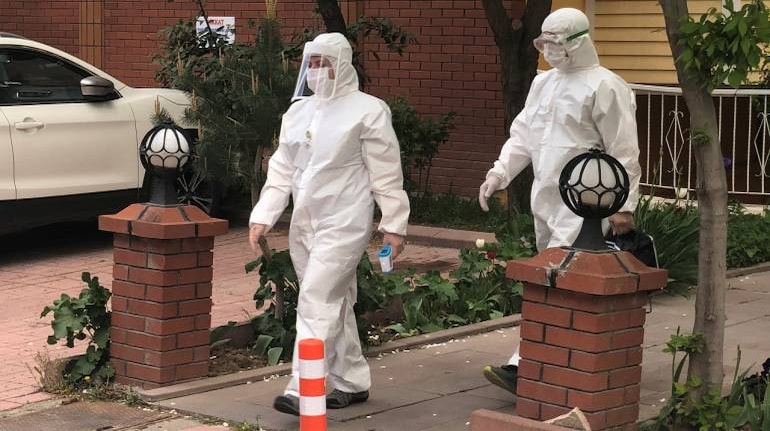
Amid surging novel coronavirus cases, the Kerala government has issued revised guidelines regarding the discharge of COVID-19 patients in the state, in line with those issued by Indian Council of Medical Research (ICMR) and the World Health Organization (WHO).
According to the new guidelines issued on July 1, the government has decided to do away with the "double negative" criteria for the discharge of coronavirus patients. Earlier, if a patient had to be discharged, they were required to test negative for the infection on two consecutive tests.
The new guidelines has divided the COVID-19 patients into four categories – asymptomatic, Category A, Category B, and Category C or disease in immunocompromised (HIV positive, transplant recipients, malignancy).
“The COVID-19 pandemic is evolving and clinical research data is revealing new knowledge into the epidemiology of the disease. It is essential that the technical strategies and guidelines are refined based on the new knowledge for control and prevention of the disease as well as for the efficient resource management,” said the Health and Family Welfare Department, Kerala in the circular.
Follow our LIVE blog for the latest updates of the novel coronavirus pandemic
Based on the recent analysis of the epidemiology of patients in Kerala and considering the guidelines of WHO and union health ministry, the revised discharge guidelines for COVID-19 patients are issued, it said.
Here are the detailed discharge guidelines in Kerala:
Asymptomatic
For asymptomatic patients, the COVID-19 test will be done on 10th day after the first result. If the test comes out negative, they would be discharged. They have been advised to not undertake any non-essential travel for seven days and take adequate rest.
If tests come out positive, the tests would be repeated every alternate day till the results come out negative.
Category A
For those with mild symptoms, tests will be done on the 10th day since the onset of symptoms, if there are no symptoms. If the symptoms persist, the test will be done a day after they are resolved. If tests come out negative, the patients will be discharged if it has been 14 days since the onset of symptoms and they have no symptoms for the past three days. They have also been asked to avoid all non-essential travel for seven days after being discharged and take adequate rest.
If tests come out positive, the test would be repeated every alternate day till the results come out negative.
Category B
For this category of patients, the guidelines are same as Category A, except the timing of the first test. In this case, tests will be done on the 14th day since the onset of symptoms, if there are no symptoms.
Category C
For severe cases, the test would be conducted on the 14th day since the onset of symptoms if there are no symptoms. If the symptoms persist, the test will be done a day after they are resolved. If the results are negative, then the patient would be discharged provided it has been 14 days since the onset of symptoms. Additionally, they should not have experienced any symptoms for the last three days and should be clinically stable. They have also been asked to avoid all non-essential travel for seven days after being discharged and take adequate rest.
If positive, the same procedure of testing repeatedly every alternate day to be followed.
Follow our full coverage on COVID-19 here.
Discover the latest business news, Sensex, and Nifty updates. Obtain Personal Finance insights, tax queries, and expert opinions on Moneycontrol or download the Moneycontrol App to stay updated!